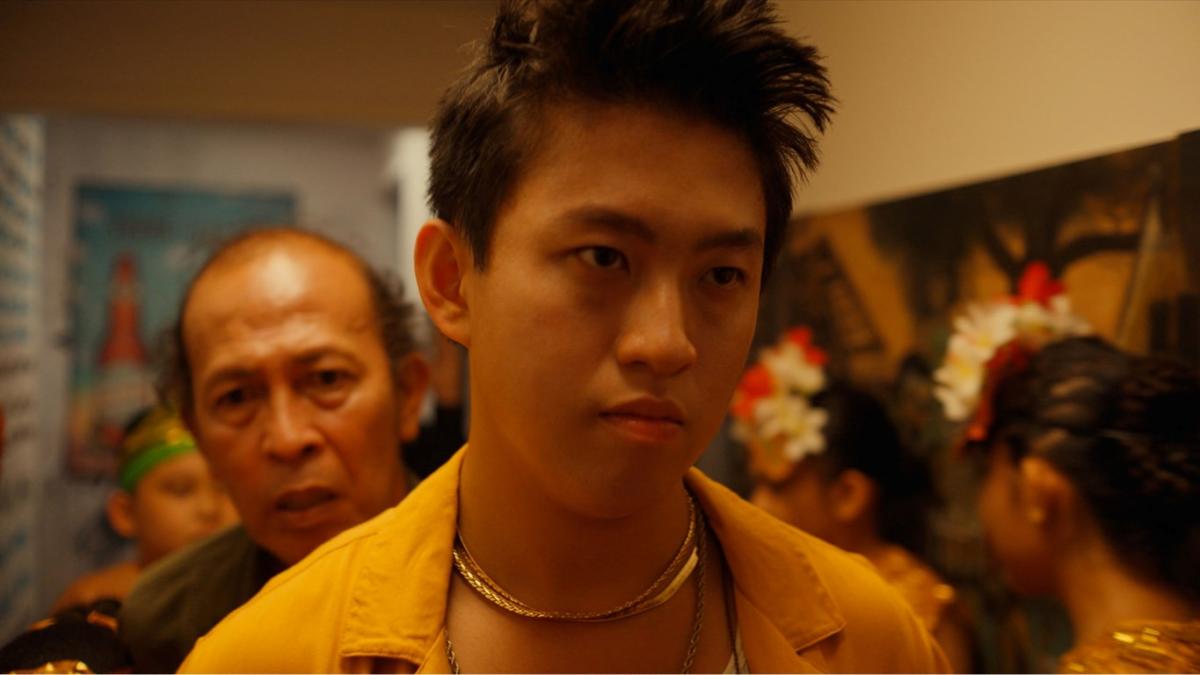The post Rich Brian Juggles Family, Music, and Culture in Jamojaya: Sundance Review appeared first on Consequence.
This review is part of our coverage of the 2023 Sundance Film Festival.
The Pitch: Indonesian rapper James (viral star Brian “Rich Brian” Imanuel, in his screen debut) is about to hit it big. So big, in fact, that he announces on Indonesian TV that his next career move is to travel to Hawaii to record his first real album, with the backing of Western studio executives and a phalanx of stylists, agents (an icy Kate Lyn Sheil), and music video directors (a prickly Anthony Kiedis of the Red Hot Chili Peppers).
This is news to his father Joyo (Yaya A.W. Unru), who’s guided his career up to this point, an elderly, working-class man not so much attuned to the needs of the music industry as he is desperate to look out for his son. Some of this is the usual overbearing-father stuff, but it’s underpinned by the fact that both he and James recently lost James’ brother, Jaya.
It’s the kind of tragedy that would cause a rift in even the healthiest father-son dynamics. But Jaya persists in hovering behind his son even after getting fired, misguidedly looking after him in ways that interfere with the slick industry flacks that now surround James — making the situation a veritable powder keg waiting to explode.
I No Bother You: Justin Chon’s fifth film follows along the narrative threads he’s traced in films ranging from Gook to Ms. Purple to last year’s Blue Bayou, tales of fragmented family units and ambitions colliding against the specificities of East-meets-West culture clash. With Jamojaya, Chon engages in some of his most interesting, experimental craft to date — which is a good thing, considering the looseness with which its narrative and thematic ideas tend to play out.
At the heart of the story is the titular Indonesian myth of Prince Jamojaya, who transforms into a banyan tree and leaves his brother struggling to find him, much less understand him in his new form. It’s a deliciously elemental core on which to hang the narrative, born out by Chon in animated sequences and purposeful usage of Hawaii’s bucolic beaches and towering mountains.
Chon finds opportunities to place James and Joyo alike at the foot of a banyan tree, looking up as if to hope that their lost loved one is in there, somewhere. All in the hopes of grounding them in this intimidating new cultural context they’ve found themselves in, one that brushes off James’ attempts to stay rooted to his family and culture (studio execs callously brush off his repeated entreaties to use an Indonesian child’s chorus in his works, or the traditional suit his brother used to wear).
Jamojaya (Sundance Institute)
Problem is, all of this enticing craft — the handheld camerawork, the beautifully claustrophobic scenes of Joyo and James trapped in small dressing rooms, bustling strip clubs, the sickly neon confines of a party bus Joyo volunteers to drive — is in service to the kind of story that, save for its Indonesian cultural specificities, we’ve seen quite a few times before.
The music industry is full of vultures swooping down to use young artists for their own ends? Check. A father bristling against his young son pulling away from him to chase his dreams? Double check. Grieving family members push each other away before pulling together the moment they need the other most? Yahtzee!
It’s all very melancholic, and Chon’s occasional flights of fancy, from the aforementioned animation and eerie dream images of beds floating above the ocean and Joyo sinking below the surface, lend the proceedings a much-needed air of magical realism. But it’s admittedly frustrating to see so much beauty doing the heavy lifting against a tale as old as capitalism.
Sometimes, Distractions Are Good: This isn’t to take away from that craft, though, particularly the pair of assured performances at its center. Playing a thinly-veiled version of himself, Imanuel is a striking presence, all boyish uncertainty that fades away the moment he steps on stage or in the recording booth.
It’s wonderfully calibrated work, even when late-film arguments tilt a bit too hard into melodramatic shouting. But such intense, youthful energy bounces wonderfully off Unru’s staggeringly assured work, imbuing Joyo with that delicate mixture of paternal protection and selfish possessiveness.
Joyo’s torn between wanting to see his boy succeed and wanting that success to come on his own terms — the fatherly obligation to protect and serve your son, even if it means debasing yourself against foreigners with more money and clout than you. His love for his son is so all-encompassing, it could lift him to the skies or drown them both, and Unru plays this mixture of pride and grief with remarkable complexity.
The Verdict: The intangibility of Jamojaya‘s storytelling is both a blessing and a curse: it keeps things streamlined, but also prevents us from really being able to dig into just what makes James and Joyo tick. But that’s what’s so intriguing about the picture, even in its flaws. Like the fable at its center, Jamojaya plays out in similarly folkloric fashion, a simple tale of a father and son pinballed between the twin stressors of grief and emergent fame.
Where to Watch: Jamojaya premiered at the 2023 Sundance Film Festival.
Rich Brian Juggles Family, Music, and Culture in Jamojaya: Sundance Review
Clint Worthington
Popular Posts
Subscribe to Consequence’s email digest and get the latest breaking news in music, film, and television, tour updates, access to exclusive giveaways, and more straight to your inbox.
